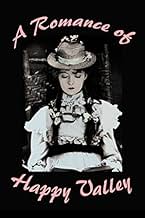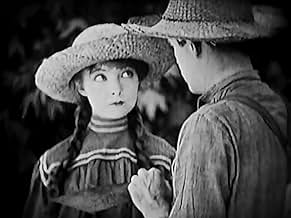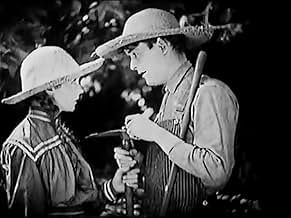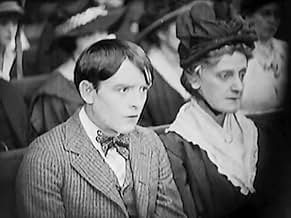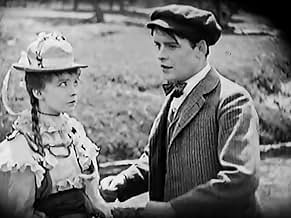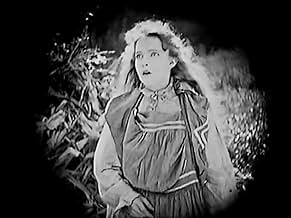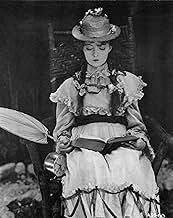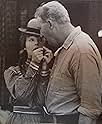Back in the early 20th century, D.W. Griffith was an innovative filmmaker. He managed to tell wonderful stories and was wildly popular through the 1910s. However, as the years passed, Griffith went from being an innovator to being very old fashioned and stodgy. It wasn't that his films had changed so much as times had changed and he hadn't kept up with them. This is strongly evident with his "A Romance of Happy Valley"—a film which worked in 1919 when it debuted but which would just seem hokey into the 1920s. This is because the film is extremely moralistic and the subtitles often come off as preachy homilies than anything else.
The story is one close to Griffith's heart. After all, like the characters in the story, he grew up in rural Kentucky and he idealized its simple way of life. Oddly, however, the film decries the evils of moving to the big city—something Griffith himself did when he packed up and moved to Los Angeles. While the city was hardly a metropolis at the time, compared to his native Kentucky, it was practically sin city! The story is about a country boy named Johnny. After hearing a New Yorker talk about how wonderful the big city is, Johnny is determined to go there and make his fortune. The problems are that Jennie (Lillian Gish) is in love with him and his parents have worked hard on the farm in order to pass it down to him. Regardless, he eventually does go to New York and soon learns about the drudgeries of city life. And, while he promised to return in one year, one year soon stretches to eight! What's to become of Jennie and Johnny's farm? If you could re-write the heavy-handed intertitle cards (which sound more like the teachings of Norman Vincent Peale than those of a filmmaker), didn't use white folks painted black* as well as NOT made all the references to Judas Iscariot for one of the characters, the film would have worked a lot better. After all, the ending is very creative and the cinematography was lovely. Worth seeing but is extremely old fashioned and is not among Griffith's better work. And, if you've seen other films like Griffith's "Home, Sweet Home" you'll see that the themes in "A Romance of Happy Valley" are often repeated in his work.
*After watching this film and other Griffith films (especially "Birth of a Nation"), I can only conclude that Griffith must have really hated black people. Again and again, instead of hiring black actors, he usually just had white guys paint themselves with burnt cork to play black parts. An enlightened guy he wasn't—and may help explain why such an important early filmmaker is all but forgotten today.

